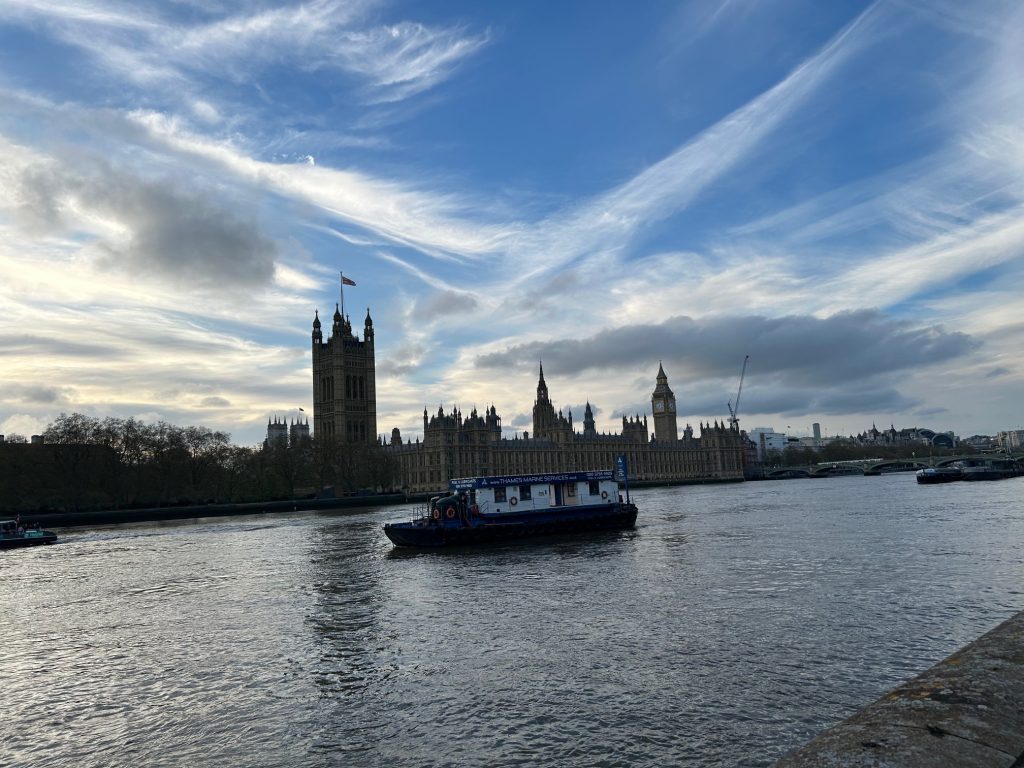
General Election is called as UK faces economic challenges
- Voters will head to polls amid sluggish growth, high interest rates and cost-of-living headwinds.
- Tax cuts set to be central to Conservative pledge on election trail despite warnings of stress on public services.
- Labour pledges have a focus on housebuilding, the NHS, a green deal and renationalising transport services.

Susannah Streeter, head of money and markets, Hargreaves Lansdown:
‘’Although some of the more severe headwinds have eased, the Conservatives will go into this election facing an electorate still struggling with the cost-of-living. Inflation has come down towards target, but it has disappointingly missed forecasts, which means prospects for an interest rate cut have been pushed further into the distance. House prices have started creeping up again, amid supply shortages in key parts of the country, which means that getting onto the ladder is still unaffordable for many young people. This is while others face the daunting prospect of remortgaging on much higher rates and tenants are watching rents climb at super painful rates. Growth forecasts have been upgraded for the UK this year by the IMF this week, from 0.5 to 0.7%, but it’s hardly shooting the lights out.
The Chancellor has pledged to cut personal taxes further, with more tinkering to National Insurance looking likely, to try and stimulate growth. The latest public sector borrowing snapshot arguably offers the government even less wiggle room to bestow treats on voters. Borrowing in April totalled £20.5 billion, above the forecast of the Office for Budget Responsibility and overall borrowing for the year was revised upwards. It seems further tax cuts would come at the expense of public services. Already current government spending plans would involve a large cut to departmental budgets over the rest of the decade, according to the IFS, to meet the government’s own fiscal rules.
With the NHS grappling with impossible waiting lists, the numbers of long-term sick have been climbing. This reduces the pools of available labour to help kick start productivity and potentially keeps wages higher, weighing on company costs, all of which is set to constrain economic growth.
Until we see the detail in the manifestos it’s difficult to analyse specific effects on sectors of the economy. There are some broadbrush indications in Labour’s pledges which may weigh on or benefit certain industries. Labour’s determination to be seen as economically credible may limit its ability to make immediate inroads into fulfilling its other central pledge of saving the NHS. Kier Starmer has vowed to abide by tough spending rules to be seen as responsible with the country’s financial health. But at the same time, there is a plan to cut NHS waiting times and deliver 40,000 more appointments by paying staff overtime. It’s far from clear whether cracking down on tax avoidance and non-doms will provide the budget needed for this.
The pledge to kickstart the building of 1.5 million new homes by shaking up the planning system and fast-tracking urban brownfield sites for development would benefit the housebuilders who have had to deal with weaker demand in an era of high interest rates and slow approvals of new sites. However, it remains to be seen just how quickly this streamlining of the planning system will take effect.
Labour intends to set up Great British Energy, a publicly owned clean power firm, with the running costs to be paid through increasing the windfall tax on oil and gas company profits from the North Sea. This would mean the current Energy Profits levy, would increase from 75% to 78%. However, it’s not clear exactly how much would be raised due to the volatility of oil and gas prices. A levy specifically on oil and gas in the North Sea is also likely to affect smaller companies rather than larger energy giants, given that they have less capacity to absorb tax changes, and it may lead to fewer contracts being clinched in the supply chain because of this. Labour also intends to draw new licensing rounds to a close, limiting future revenues streams for companies already operating on the UK’s continental shelf.
Labour’s promise to spend £28 billion on a green push was diluted, but the party is still planning to significantly increase investment to ensure net zero targets are within reach. This would include retrofitting more homes with insulation, which is likely to benefit companies selling insulation products but also energy companies, large and smaller who have been winning contracts to make improvements to ensure homes are warmer.
A tougher stance towards water companies which pollute rivers and seas, is also likely to weigh further on the utilities sector. It plans to give the regulator more power to increase fines and force firms to strip executives of bonuses. Already the cost of repairs to leaky and inefficient infrastructure is a heavy future burden, and with the risk of fines becoming more severe, it’s likely to make the UK water utilities sector even less attractive.
Given the pledges already made by the Labour government, there is likely to be a significant shake up of the public transport sector. There are plans to allow more councils to run bus franchises, and Labour has also announced a readiness to renationalise the country’s rail network by not renewing contracts with private operators. This is set to affect companies like First Group, which runs services in the West of England, commuter services in London and an Edinburgh to London route. Mobico also runs bus services in the West Midlands, and so could also potentially be hit by increased competition. However, with other train companies already taken into state control, further renationalisation would not come as a big surprise, so is unlikely to move the dial extensively in terms of share prices.
The headline of Labour’s campaign will be the pledge to save the NHS with public concern about health services so high. The hardest part may well be delivering in office. Especially in the short-term considering the myriad of issues the NHS faces, such as funding, the ageing population, workforce issues and its complex inter-relationship with other policy issues such as social care. Labour may well be able to build confidence in its agenda for government by setting out a clear long-term plan early – but need to take the public with them, especially with trust in politics generally in short supply.”





